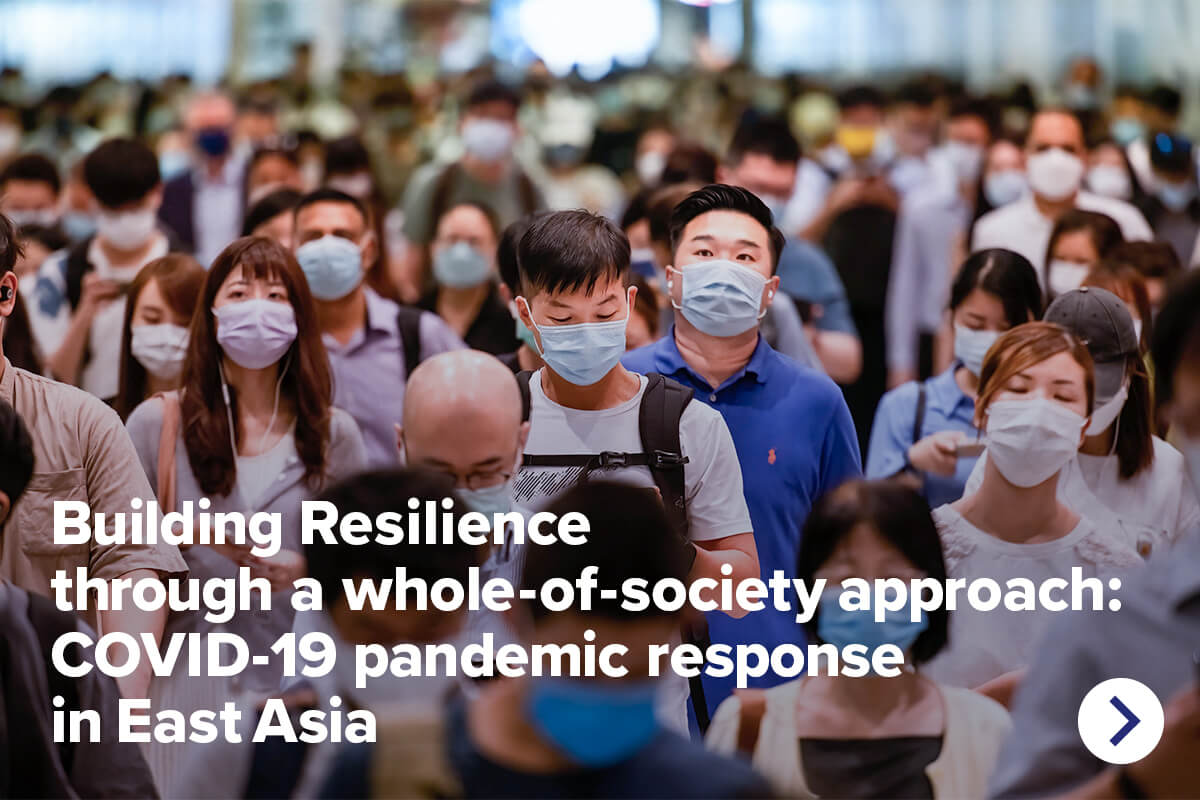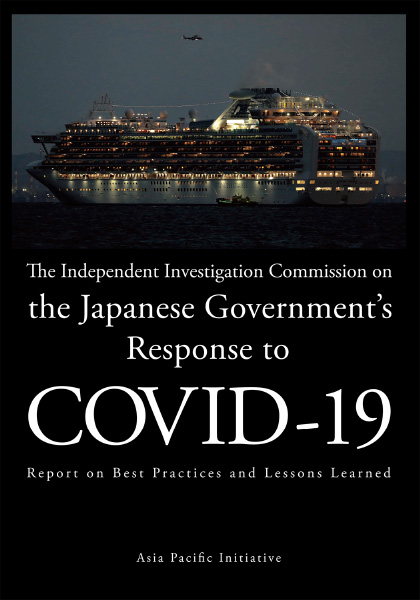East Asian
response
to COVID-19
Preparing for disease X
and next health crisis




The COVID-19 pandemic is the most devastating global health crisis in over a century. During the crisis, East Asian countries and regions have kept the number of COVID-19 deaths per population relatively lower than in other countries. The world has drawn its attention to how East Asia has managed the risk of COVID-19 and controlled the potential damage.
Since 2020, Asia Pacific Initiative (API) has reviewed how East Asian countries confronted COVID-19, and good practices and lessons learned to share with the world. The project covers seven countries/regions: Japan, Singapore, Vietnam, South Korea, Taiwan, Thailand, and Hong Kong. The project will provide recommendations on how to prepare not only for the current COVID-19 response, but also for Disease X, a serious infectious disease that could cause outbreaks by a pathogen currently unknown, including the next highly lethal coronavirus (COVID-X).
Publications
18 October 2022
Building Resilience through a whole-of-society approach: COVID-19 pandemic responses in East Asia
Interim report of the East Asian response to COVID-19 Project
Yoshiyuki Sagara, Thomas Stables, and Lauren Baehr
The COVID-19 pandemic is the most devastating global health crisis in over a century. During the crisis, East Asian countries and regions, excluding China, were able to provide effective operational knowledge to the public, reduce core national vulnerabilities, and adjust healthcare capacity and resources in ways that created public trust and a sense of legitimacy in the competency of the governments' strategies. This created and maintained a whole-of-society response, which allowed East Asia to build resilience and effectively control the COVID-19 pandemic. Such responses bought these governments time by keeping infections relatively low until vaccines were available.
Download the ReportLatest contents
-


REPORT
1 March 2022 / Japan TimesThe Beijing Games — the beginning of the end of China’s ‘COVID zero’ policy?
by Yoshiyuki Sagara
-
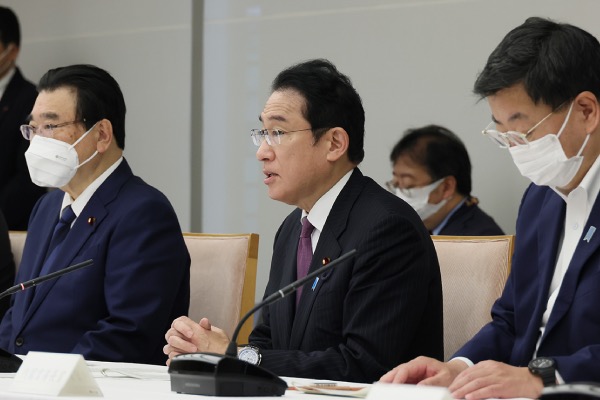

REPORT
20 January 2022 / Japan TimesJapan needs radical change to achieve health security
by Yoshiyuki Sagara
How should Japan build its economic security to prepare for and respond to such crises to protect the lives and health of its people?
-
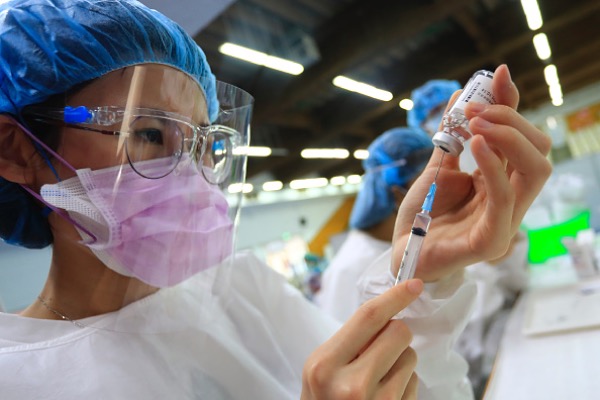

REPORT
11 June 2021 / Japan TimessHow Japan can help tackle East Asia's coronavirus surge
by Yoshiyuki Sagara
East Asian countries have managed to keep COVID-19 fatalities remarkably low compared to Europe and the U.S. through strict border and movement control measures. Recently, these countries are seeing a surge in infections due to highly contagious variants transcending borders -- challenges Japan has been struggling with. As East Asian countries had succeeded in containing infections, they are, ironically, less aware of the threat of the virus compared to Europe and the United States and as a result have been slow to provide vaccines. This has been creating an East Asian COVID-19 paradox.
-
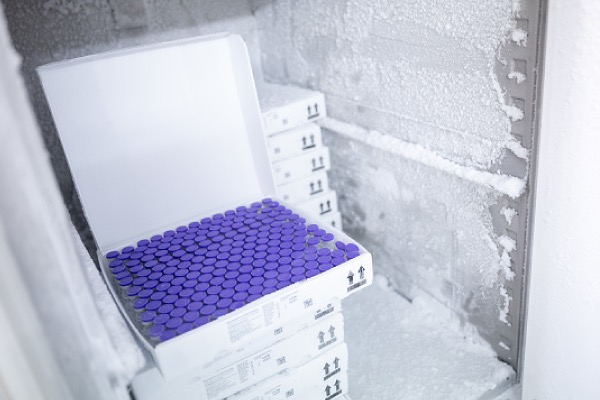

REPORT
11 June 2021 / Japan TimesRobust vaccine supply chain is key to ending the pandemic
by Yoshiyuki Sagara
Building a resilient vaccine supply chain in Japan and the world to step up vaccinations is necessary to not only prevent the spread of infections but also stop the novel coronavirus from mutating.
-
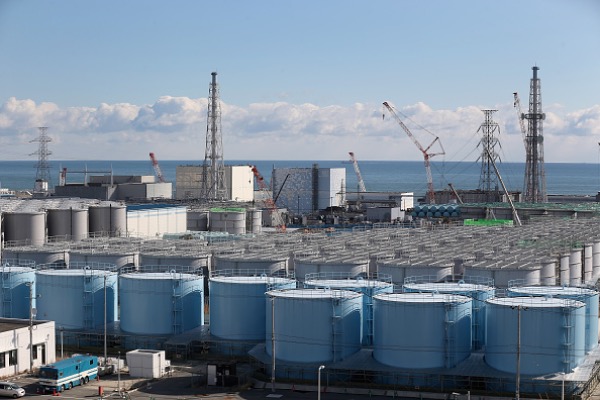

REPORT
23 March 2021 / Japan TimesJapan needs a stronger crisis review system
by Yoshiyuki Sagara, Jun Mukoyama, and Narumi Shibata
-
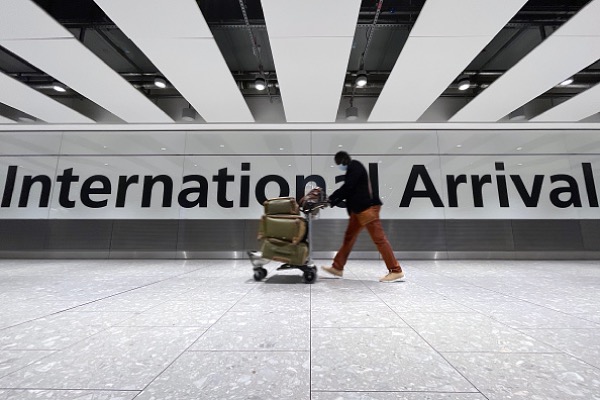

REPORT
7 February 2021 / Japan TimesWhat is needed to bring back freedom of movement
by Yoshiyuki Sagara
-
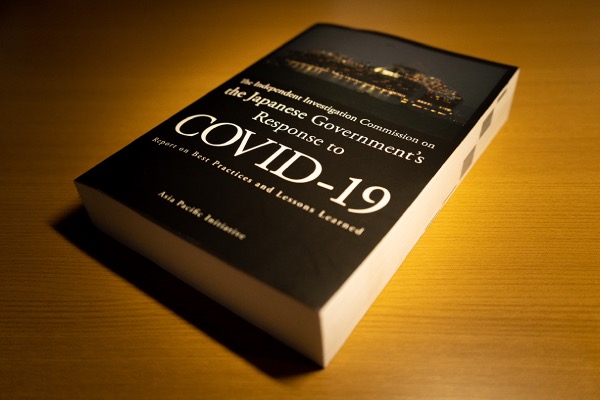

REPORT
8 January 2021 / Japan TimesJapan’s COVID-19 response: What it did right, what it has to learn
by Yoshiyuki Sagara
-
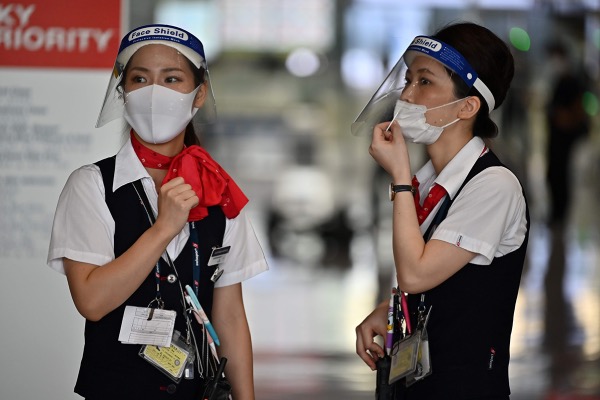

REPORT
1 September 2020 / Japan TimesHow to reopen national borders
by Yoshiyuki Sagara
Events
-
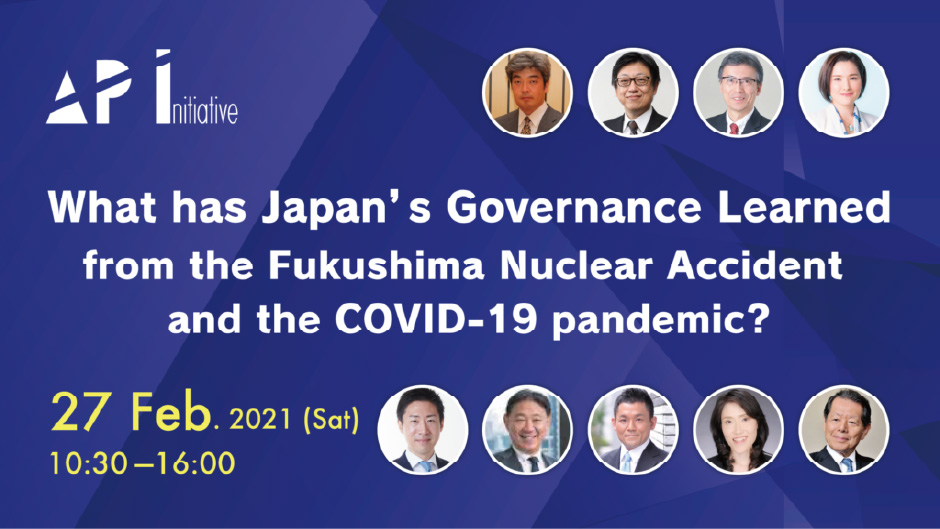
What has Japan’s Governance Learned from the Fukushima Nuclear Accident and the COVID-19 pandemic?
27 February 2021
https://apinitiative.org/en/2021/02/10/23337/It’s been almost ten years since the Fukushima nuclear power plant accident, which was triggered by the Great East Japan Earthquake on March 11, 2011. In 2012, the Rebuild Japan Initiative Foundation (RJIF), the predecessor of API, released the Report of the “Independent Investigation Commission on the Fukushima Nuclear Accident,” from an independent, private-sector perspective.
In the summer of 2019, API launched the “10-year Investigation Commission on the Fukushima Nuclear Accident” to once again review lessons identified by RJIF’s Independent Investigation Commission and to examine what we have learned, or not. On February 19, API will publish the “Final Report of the Independent Investigation Commission.”By using the experience and methodology of the Independent Investigation Commission, API also established the “Independent Investigation Commission on the Japanese Government’s Response to COVID-19 (API/ICJC)”, which published the Japanese-language version of its report in October 2020 and English-language version in January 2021.
During the past decade after the Fukushima nuclear accident, what has Japan’s governance learned? Have the lessons learned been applied to the national crisis created by the COVID-19 pandemic? In this symposium, API invited speakers from its independent investigation commissions on the Fukushima nuclear accident and COVID-19, as well as practitioners directly involved in the two national crises.
- Opening Remarks
- Part 1 10-year Investigation Commission on the Fukushima Nuclear Accident
- Part 2 The Independent Investigation Commission on the Japanese Government’s Response to COVID-19 (API/ICJC)
- Part 3 Fukushima and COVID-19: what have we learned from the two crises? Closing remarks
Asia Pacific Initiative Forum 2020 (4 December 2020)
Asia has been emerging as one of the leading engines of the world. The region’s imminent trajectory of exponential growth has, however, encountered an unprecedented challenge: the COVID-19 pandemic. Responding to the ensuing worldwide disruption has required vision, acumen and wisdom that, thankfully, no shortage of entrepreneurs and public sector leaders in the Asia-Pacific region possess.
Asia Pacific Initiative Forum (APIF) 2020 was held on a virtual platform. API invited executives from Asian companies, top government officials, as well as public intellectuals.
Akihisa Shiozaki (Attorney, Partner, Nagashima Ohno & Tsunematsu) briefed on the outcome from “The Independent Investigation Commission on the Japanese Government’s Response to COVID-19” conducted in 2020.
The Independent Investigation Commission on the Japanese Government’s Response to COVID-19 (API/ICJC)
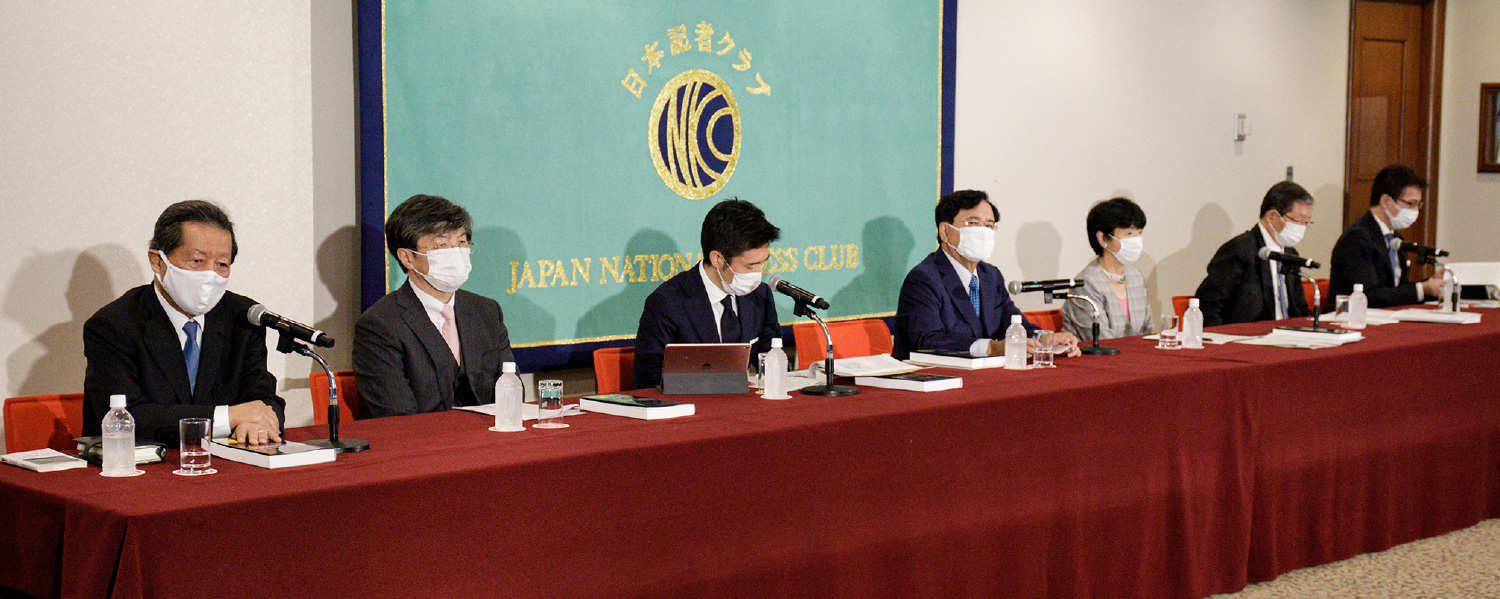
API established “The Independent Investigation Commission on the Japanese Government’s Response to COVID-19” in July 2020 to examine how Japan responded to the COVID-19 crisis, and published a report titled “The Independent Investigation Commission on the Japanese Government’s Response to COVID-19: Report on Best Practices and Lessons Learned” in Japan in October 2020.
On 8 January 2021, API published the English version of the Commission Report and made it available online.
Under the guidance of the Commission, which consisted of four leading experts, the Working Group (WG) composed of 19 experts in medical, law, public policy, crisis response, health security, and international relations, conducted 102 interviews with 84 government officials and experts, including the Prime Minister Shinzo Abe, the Chief Cabinet Secretary Yoshihide Suga, the Minister of Health, Labour and Welfare Katsunobu Kato, as well as numerous other senior government officials who provided insight on the background of the events.
Asia has been emerging as one of the leading engines of the world. The region’s imminent trajectory of exponential growth has, however, encountered an unprecedented challenge: the COVID-19 pandemic. Responding to the ensuing worldwide disruption has required vision, acumen and wisdom that, thankfully, no shortage of entrepreneurs and public sector leaders in the Asia-Pacific region possess.
Asia Pacific Initiative Forum (APIF) 2020 was held on a virtual platform. API invited executives from Asian companies, top government officials, as well as public intellectuals.
Akihisa Shiozaki (Attorney, Partner, Nagashima Ohno & Tsunematsu) briefed on the outcome from “The Independent Investigation Commission on the Japanese Government’s Response to COVID-19” conducted in 2020.
API established “The Independent Investigation Commission on the Japanese Government’s Response to COVID-19” in July 2020 to examine how Japan responded to the COVID-19 crisis, and published a report titled “The Independent Investigation Commission on the Japanese Government’s Response to COVID-19: Report on Best Practices and Lessons Learned” in Japan in October 2020.
On 8 January 2021, API published the English version of the Commission Report and made it available online.
Under the guidance of the Commission, which consisted of four leading experts, the Working Group (WG) composed of 19 experts in medical, law, public policy, crisis response, health security, and international relations, conducted 102 interviews with 84 government officials and experts, including the Prime Minister Shinzo Abe, the Chief Cabinet Secretary Yoshihide Suga, the Minister of Health, Labour and Welfare Katsunobu Kato, as well as numerous other senior government officials who provided insight on the background of the events.


 APIニュースレター 登録
APIニュースレター 登録